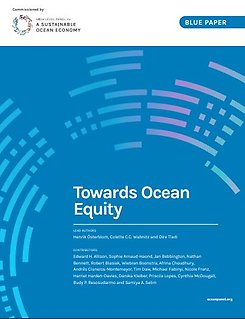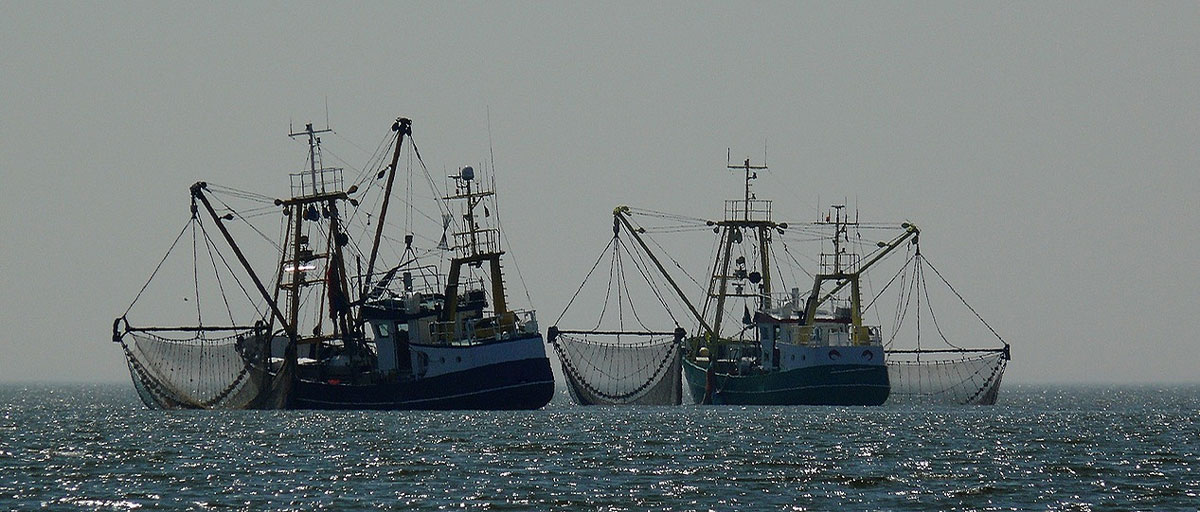Bildtext får vara max två rader text. Hela texten ska högerjusteras om den bara ska innehålla fotobyline! Photo: B. Christensen/Azote
OCEAN EQUITY
Inequity hampers ocean sustainability
- The ocean is a source of resources and services that are vital to everyone. Currently these benefits are accumulated by a few actors
- Legal practices exist but are not sufficiently developed to fully address inequities
- Addressing equity issues is an integral part of achieving a sustainable ocean economy and therefore crucial for future ocean governance
Marine resources and the benefits from the ocean are not equitably distributed. Ocean economics is in need of a shift, report says
THE OCEAN SHOULD BE FOR EVERYONE: It produces oxygen, stores carbon, and is a source of food and livelihoods for millions of people around the world. However, benefits from the ocean are enjoyed and accumulated by a privileged few.
Inequity has brought environmental challenges and negative effects on human well-being. It is embedded in political and economic systems, a systemic feature of the current ocean economy.
Hardest hit most vulnerable
In the report Towards ocean equity, a background report to the High Level Panel for a Sustainable Ocean Economy, centre researchers Henrik Österblom, Colette Wabnitz, Robert Blasiak, Wijnand Boonstra, Tim Daw, and colleagues from around the world, look at what maintains this inequity and call for a shift in the ocean economy.
Until now, discussions on sustainability have overshadowed concerns about social equity, but the two are linked. Addressing inequity is integral to achieving a sustainable ocean economy.
Henrik Österblom, report co-author
A necessary shift
Inequity in the ocean economy is manifested in, for example, unfair distribution of commercial fish catches, limited political power of small-scale fishers, and limited engagement of developing nations in activities on the high seas outside of their national waters.
Those hardest hit by the inequity are those that are already vulnerable.
The authors argue that a sustainable ocean economy should not only consider environmental aspects of sustainability.
It should also protect human rights, improve human well-being, stimulate inclusion and gender equity, and prioritize recognition, diversity and equal access to resources to provide fair opportunities consistent with sustainable development.
The authors say it should also address corruption and tax evasion, demand responsible and transparent business practices and create a shared economy that facilitates a fair redistribution of wealth and benefits.
Colette Wabnitz, co-author to the report and affiliated researcher at the Stockholm Resilience Centre and the the Stanford Centre for Ocean Solutions, concludes, “A sustainable ocean economy is critical today – and there is also a major risk that ocean inequities will increase in the near future as a result of climate change. Ocean equity will require strong leadership, inclusive governance and long-term planning.”
Podcast: Will the Ocean Science Decade help make our oceans healthy again?
Background information
The High Level Panel for a Sustainable Ocean Economy is a group of world leaders from around the globe committed to developing, catalyzing and supporting solutions for Ocean health and wealth in policy, governance, technology and finance.
The panel has commissioned a series of “Blue Papers” to explore pressing challenges at the nexus of the ocean and the economy. These Blue Papers will summarise the latest science, and state-of-the-art thinking about innovative ocean solutions in technology, policy, governance, and finance realms that can help to accelerate a move into a more sustainable and prosperous relationship with the ocean.
Click here to read more about the High Level Panel for a Sustainable Ocean Economy
For more details about the report, contact centre science director Henrik Österblom











